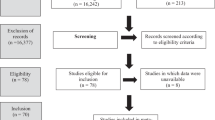Abstract
Despite higher risk for school failure, few school-based mentoring (SBM) studies have focused on low-income at-risk Latino children. We describe the development and evaluation of the Youth Empowerment Program (YEP), a sustainable, high-quality, SBM program among urban Latino students. Based on evidence from work in other communities, YEP was created as a partnership between the 4th and 5th grades at a Los Angeles Title I elementary school and university undergraduates. We tested the feasibility of applying a previously validated relationship quality assessment tool in this population. Since 2008, 61 mentor and mentee pairs have participated in YEP, with an average relationship length of 1.5 years. Through 2010, over 95 % of pairs had relationships lasting at least 1 year, while 47 % lasted 2 or more years. Seventy-percent of mentees and 85 % of mentors were female, and an increased trend for early relationship termination was observed among male mentees. Through 2011, relationships lasted under 1 year among 29 % of male mentees compared to 7 % of female mentees (p = 0.15). A previously validated relationship quality assessment tool was easily incorporated into YEP, with relationships exhibiting youth-centeredness, emotional engagement and low dissatisfaction. After 5 years, YEP has become a feasible and sustainable SBM program providing long-term relationships for low-income Latino children. These relationships may improve youth health through fewer risky behaviors and attitude improvements. Future work should focus on supporting male mentors and mentees.


Similar content being viewed by others
References
Grossman, J., & Rhodes, J. (2002). The test of time: Predictors and effects of duration in youth mentoring relationships. American Journal of Community Psychology, 30(2), 199–219.
Grossman, J., & Bulle, M. (2006). Review of what youth programs do to increase the connectedness of youth with adults. Journal of Adolescent Health, 6, 788–799.
Sipe, C. (2002). Mentoring programs for adolescents: A research summary. Journal of Adolescent Health, 31(6), 251–260.
DuBois, D., Holloway, B., Valentine, J., & Cooper, H. (2002). Effectiveness of mentoring programs for youth: A meta-analytic review. American Journal of Community Psychology, 30(2), 157–197.
Rhodes, J., Reddy, R., Roffman, J., & Grossman, J. (2005). Promoting successful youth mentoring relationships: A preliminary screening questionnaire. Journal of Primary Prevention, 26(2), 147–167.
Rhodes, J., Grossman, J., & Resch, N. (2000). Agents of change: Pathways through which mentoring relationships influence adolescents’ academic adjustment. Child Development, 71(6), 1662–1671.
Herrera, C. (2004). School-based mentoring: A closer look. Philadelphia, PA: Public/Private Ventures.
Karcher, M. (2008). The study of mentoring in the learning environment (SMILE): A randomized evaluation of the effectiveness of school-based mentoring. Prevention Science, 9(2), 99–113.
Herrera, C., Sipe, C., McClanahan, W., Arbreton, A., & Pepper, S. (2000). Mentoring school-age children: Relationship Development in community-based and school-based programs. Philadelphia, PA: Public/Private Ventures.
Karcher, M., Nakkula, M., & Harris, J. (2005). Developmental mentoring match characteristics: Correspondence between mentors’ and mentees’ assessments of relationship quality. Journal of Primary Prevention, 26(2), 93–110.
Grossman, J., Chan, C., Schwartz, S., & Rhodes, J. (2011). The test of time in school-based mentoring: The role of relationship duration and re-matching on academic outcomes. American Journal of Community Psychology, 49(2), 43–54.
Shetgiri, R., Kataoka, S., Ryan, G., Askew, L., Chung, P., & Schuster, M. (2009). Risk and resilience in Latinos: A community-based participatory research study. American Journal of Preventive Medicine, 37(6), S217–S224.
Jucovy, L. (2002). Measuring the quality of mentor-youth relationships: A tool for mentoring programs. Philadelphia, PA: Public/Private Ventures.
Office of Data and Accountability, “2010–2011 school accountability report card (SARC),” Los Angeles unified school district, 2011. Online. Available: http://search.lausd.k12.ca.us/cgi-bin/fccgi.exe?w3exec=sarc4&which=6952. Accessed August 13, 2013.
Los Angeles Unified School District, “Data summary sheet,” 2011. Online. Available: http://schoolinfosheet.lausd.net/budgetreports/reports.jsp. Accessed August 13, 2013.
Neighborhood Knowledge California (NKCA), UCLA School of Public Affairs, Online. Available: http://www.spa.ucla.edu/policyforum/default.cfm?page=nkca_info.cfm. Accessed March 18, 2012.
US Census Bureau, “census 2000 block group,” Online. Available: http://www.census.gov/geo/www/cob/bg2000.html. Accessed March 19, 2012.
Cannata, A., Garringer, M., Taylor, J., & Arvalo, E. (2006). Preparing participants for mentoring: The U.S. Department of Education Mentoring Program’s guide to initial training of volunteers, youth, and parents, Encino, CA: Mentor Resource Center.
Jucovy, L. (2001). Training new mentors. Philadelphia, PA: Northwest Regional Educational Laboratory’s National Mentoring Center.
Bernstein, L., Rappaport, C., Olsho, L., Hunt, D., & Levin, M. (2009). Impact evaluation of the U.S. Department of Education’s student mentoring program. Washington, DC: National Center for Education and Regional Assistance.
Molnar, B., Cerda, M., Roberts, A., & Buka, S. (2008). Effects of neighborhood resources on aggressive and delinquent behaviors among urban youths. American Journal of Public Health, 98(6), 1086–1093.
Schwartz, S., Rhodes, J., Chan, C., & Herrera, C. (2011). The impact of school-based mentoring on youths with different relational profiles. Developmental Psychology, 47(2), 450–462.
Herrera, C., Grossman, J., Kauh, T., & McMaken, J. (2011). Mentoring in schools: And impact study of big brothers big sisters school-based mentoring. Child Development, 82(1), 346–361.
Acknowledgments
We acknowledge the Stoner Avenue Elementary school principals and elementary school teachers whose support is integral to YEP’s existence. We also thank the numerous SCOPE mentors and LAUSD students who have participated in this program. We thank Dr. Rashmi Shetgiri for her help in early program conceptualization. The SCOPE program is partially supported by a federal Maternal and Child Health Bureau Pipeline Grant (T16MC06956, PI = Kuo).
Author information
Authors and Affiliations
Corresponding author
Rights and permissions
About this article
Cite this article
Coller, R.J., Kuo, A.A. Youth Development Through Mentorship: A Los Angeles School-Based Mentorship Program Among Latino Children. J Community Health 39, 316–321 (2014). https://doi.org/10.1007/s10900-013-9762-1
Published:
Issue Date:
DOI: https://doi.org/10.1007/s10900-013-9762-1




